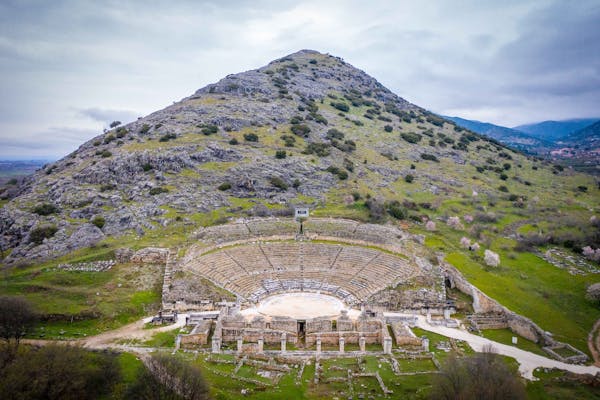Finally, Paul was put on a ship and sent to Rome. Luke writes “And when it was decided that we should sail for Italy, they delivered Paul and some other prisoners to a centurion of the Augustan Cohort named Julius.” (Acts 27:1)
Paul didn’t travel alone; Luke and Aristarchus, a Macedonian from Thessalonica went with him. They sailed along the coast of Asia and the journey was comfortable thanks in large part to Julius who treated Paul with kindness and gave him permission to visit with friends when they docked in Sidon. The voyage was slow and tedious with multiple stops at various ports. The seas grew progressively rougher raising concerns in Paul’s mind about the safety of the ship and those on board. When they had docked in a port named Fair Havens and were contemplating the next leg of the journey Paul approached the men in charge and cautioned; “Sirs, I perceive that the voyage will be with injury and much loss, not only of the cargo and the ship but also of our lives” (Acts 27:10)
The pilot and the owner of the ship disagreed with Paul’s assessment. Fair Havens didn’t provide the best conditions for wintering in port and setting off as quickly as possible meant they could get to their destination before winter, perhaps securing their financial gain in the process. Julius agreed with the pilot and the owner regardless of how their vented interests may have colored their assessment of the situation. Paul said nothing more probably because as a prisoner his options were limited and his voice didn’t matter. Confident that they had made the right choice the men put out to sea and soon faced a nightmare.
A gentle southern wind kicked up, alleviating any nervousness they might have had after Paul’s ominous warning. The ship glided along at a good clip along the coast of Crete and all was well. Then without warning a northeaster bore down on them; unrelenting in its fury and unrivaled in its force. The wind caught the ship in its fingers and tossed it against the ocean like a plaything, foaming and frothing the waves around it until it seemed on the brink of being swallowed whole.
Heavy with cargo the ship lumbered against the waves, awkward and unwieldy, juddering into the blackened peaks of water before plunging into the yawning troughs at breakneck speed. Terrified the captain ordered that the cargo be jettisoned and this helped relieve the stress on the ship but the inky darkness that surrounded them day and night made navigation impossible. They were lost at sea, tossed about in the waves until everyone on board gave up hope of making it out of the tempest alive. Everyone except Paul, who had someone foreseen the calamity and now weather it with far more courage than the men who had recklessly dived into it.

